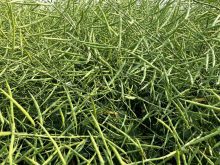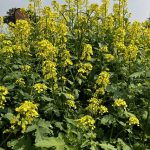Buenos Aires | Reuters –– Argentine farmers will likely sow less corn in the upcoming 2014-15 season if the government fails to stave off a new sovereign default in talks being held in New York this month, industry analysts said.
Recession-hit Argentina is the world’s No. 3 exporter of corn and soybeans, but Argentine grain producers rely heavily on loans to fund planting.
A default would force up interest rates, making it harder for growers to hit their corn planting goals. Corn is already Argentina’s most expensive crop to cultivate.
Read Also

U.S. grains: Chicago grain prices fall amid profit-taking and dollar rebound
Chicago | Reuters – Chicago corn, soybean and wheat futures fell on Friday, pressured by profit-taking and a rebound in…
Argentina defaulted on $100 billion in bonds in 2002 (all figures US$). A group of New York hedge funds, which rejected the terms of Argentina’s 2005 and 2010 debt restructurings, has won a string of U.S. court rulings that have pushed the country to the brink of a new debt crisis.
If the government fails to reach an agreement with the holdouts by a July 30 deadline and falls into default, financing costs in the South American grains powerhouse are sure to rise.
“Planting would become more expensive, which will impact corn sowing more than anything else because it is the most expensive crop to cultivate,” said Juan Rey Kelly, an economist with the Argentine Rural Confederation (CRA) chamber, which represents farmers.
The Buenos Aires Grains Exchange expects Argentine farmers to bring in 25 million tonnes of corn in the 2013-14 season, which is now being harvested.
Planting good-quality corn costs on average $500 per hectare while soy, which is more resistant to drought and high humidity, costs $350.
Corn and soy planting in Argentina typically starts between August and September. Exporters and local banks often extend loans to Argentine farmers to finance planting, but a default would interrupt some of these financial flows.
Argentina’s over-the-counter bond prices climbed on Tuesday on the back of growing optimism Argentina would reach a deal with the holdout investors. But analysts say a default cannot be ruled out yet.
One economist who requested anonymity estimated farmers could face an increase in borrowing costs of at least a third if Argentina is unable to pay out to bondholders by end July.
Adding to the pinch, grains producers have for years complained that government-imposed caps on corn exports, meant to shore up local food supplies, have eaten in to their profits.
“In difficult times, you try to lower your investment per hectare and go with less-risky crops,” said Ernesto Ambrosetti, chief economist at the Rural Argentina Society.
Growers would cut their usage of fertilizer and pesticides, leading to lower productivity, Ambrosetti said.
An all-out shift toward soy, however, may not be in the works as farmers face pressure to rotate crops after years of overplanting the easy-to-grow oilseed. Crop rotation ensures soils remain fertile.
Martin Fraguio, who heads the corn industry chamber, Maizar, said farmers would simply rent less land so that they could “invest more per hectare and receive a better return per hectare.”
— Maximiliano Rizzi is a Reuters correspondent in Buenos Aires. Writing for Reuters by Richard Lough.













